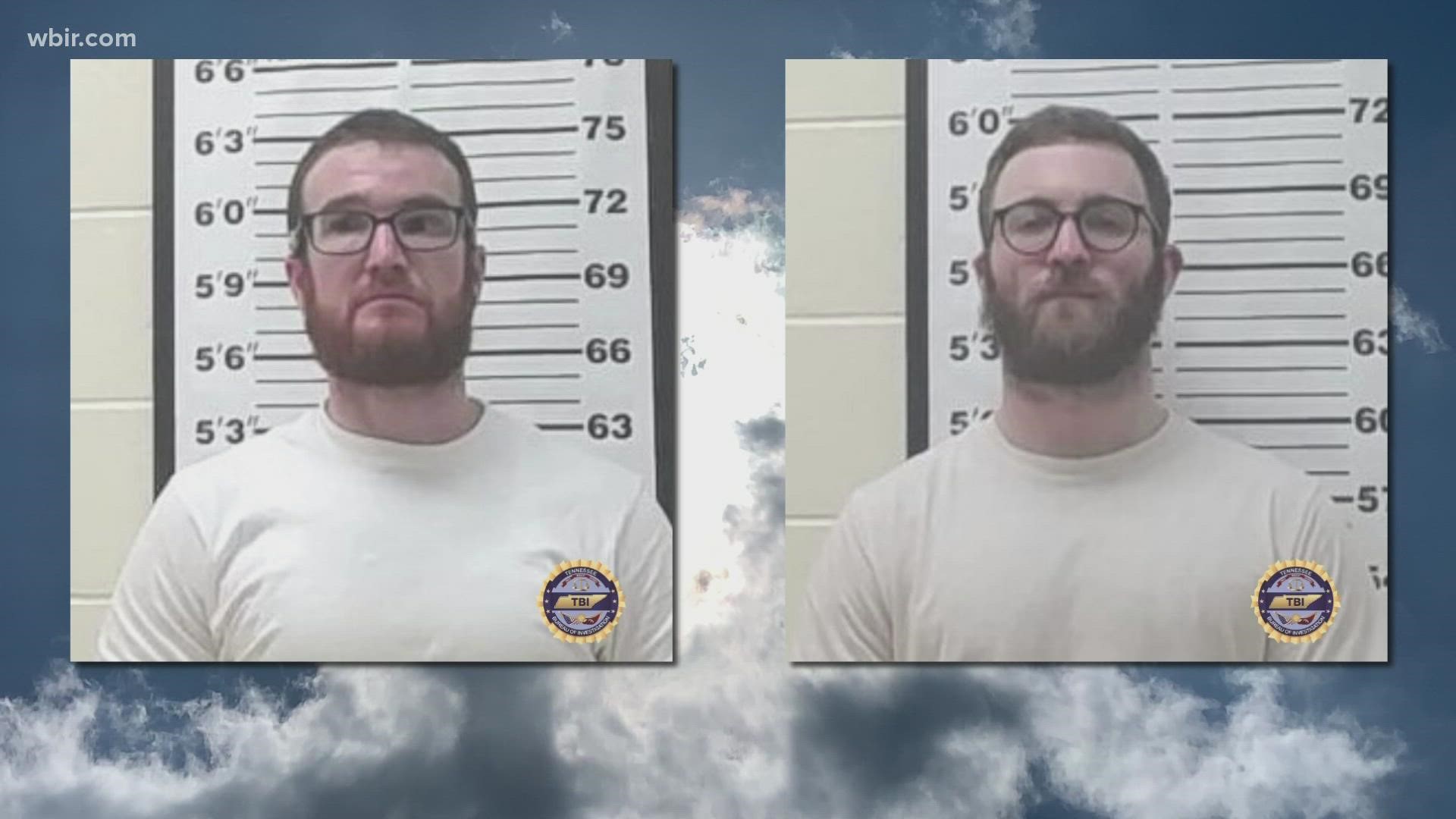'The failsafe was death' | The daring story of how two inmates escaped — and the mysterious video of a body for ransom in Mexico
Casey Ridenour and Charles Kennedy strategized every detail of their escape from the Fentress County jail. It all went out the window as soon as they started to run.
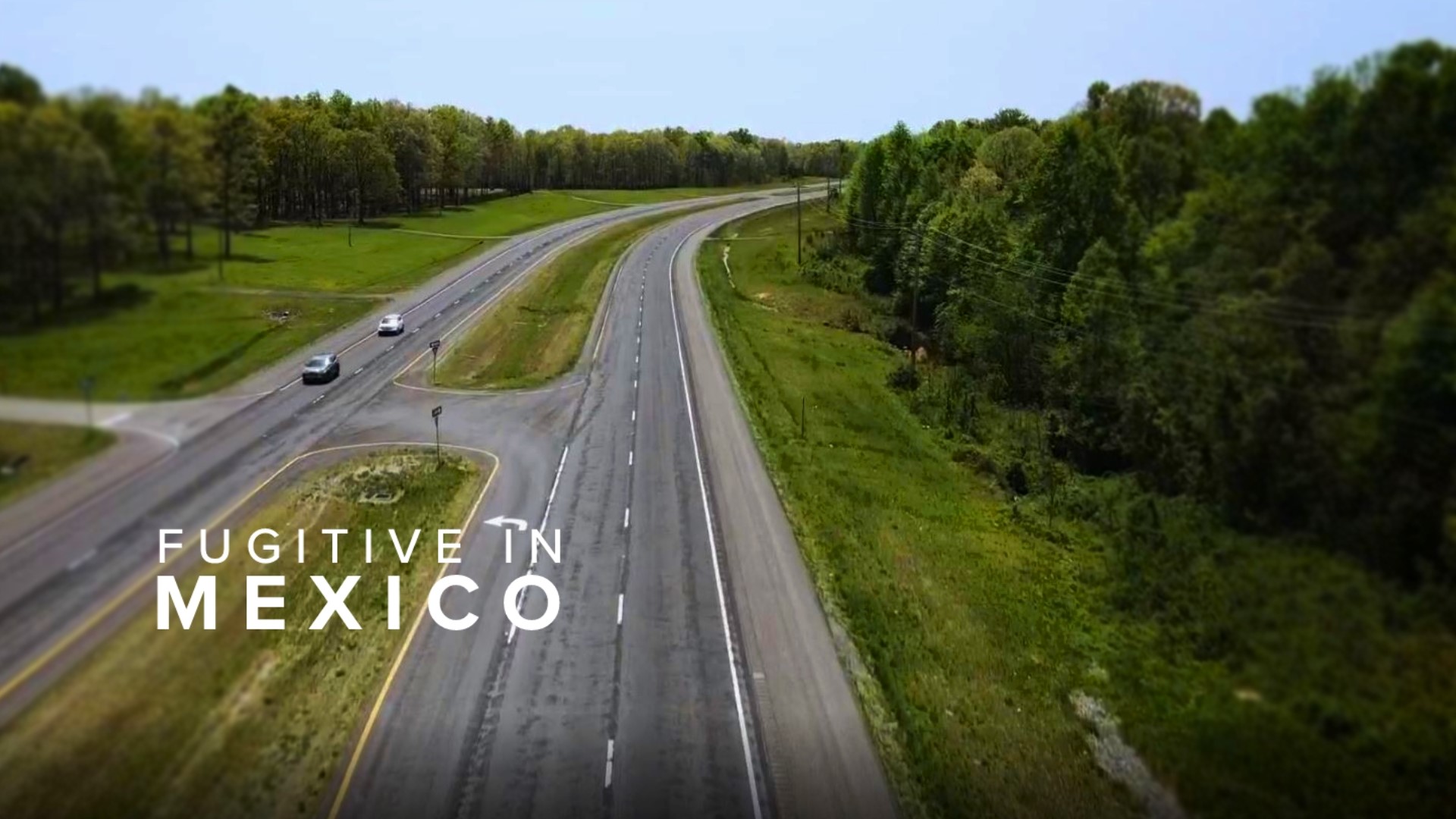
Watch the never-before-told story of this daring escape Monday night at 6 and 11 on WBIR Channel 10.
They would've made it if it weren't for the mosquitoes.
Deep in the woods of Fentress County, Tenn., Charles Kennedy and Casey Ridenour burrowed into the mud to rest — and think.
The jailhouse friends had run through the trees all day and into the night. At 7:48 on the morning of July 19, 2021, they bolted out of an unlocked door at the county jail, stole a jailer's car and escaped.
Kennedy and Ridenour, charged with burglary and second-degree murder respectively, had evaded deputies and search dogs for hours. They carried makeshift mop-string backpacks, stores of peanut butter and bleach for water purification, a pink surgical mask disguise and a plan to steal two identities and get to Mexico. They just needed a moment to strategize and catch their breath.
But the bugs kept biting. So they kept moving. Eaten alive and exhausted after more than a dozen hours on the run, the pair made a mistake late that night which cost Ridenour his freedom.
"We thought we would make it. We really, really believed we would make it," Ridenour said.
Kennedy did make it to Mexico but didn't enjoy his freedom long. In November, his sister received a ransom video from a Mexican criminal organization asking for money in exchange for his body, authorities said.
In a series of jailhouse interviews with 10News, Ridenour described for the first time their weeks of meticulous preparation for the escape, their hours together on the lam and their plan for survival 2,000 miles south of home.
It's impossible to verify all of Ridenour's story. Law enforcement confirmed some key details, but certain records related to the investigation haven't been released. The TBI said its file will remain confidential.
The tale is one of friendship, conspiracy, luck and mystery — or, as Ridenour described it, "More or less a cowboy story."
Jailhouse Buddies "He put Bear Grylls to shame"
More than a decade apart in age, Charles Edward Ray Kennedy and Casey Lee Ridenour first hit it off on a work detail while serving sentences for burglary in 2018, Ridenour said.
"We actually both got out on the same day years ago and just started being buddies," Ridenour recalled over a jail video phone he held in a hand with the word "PAIN" tattooed on his left knuckles. He and Kennedy spent so much time together, Ridenour said they began to "imprint" on each other and mimic the other's mannerisms.

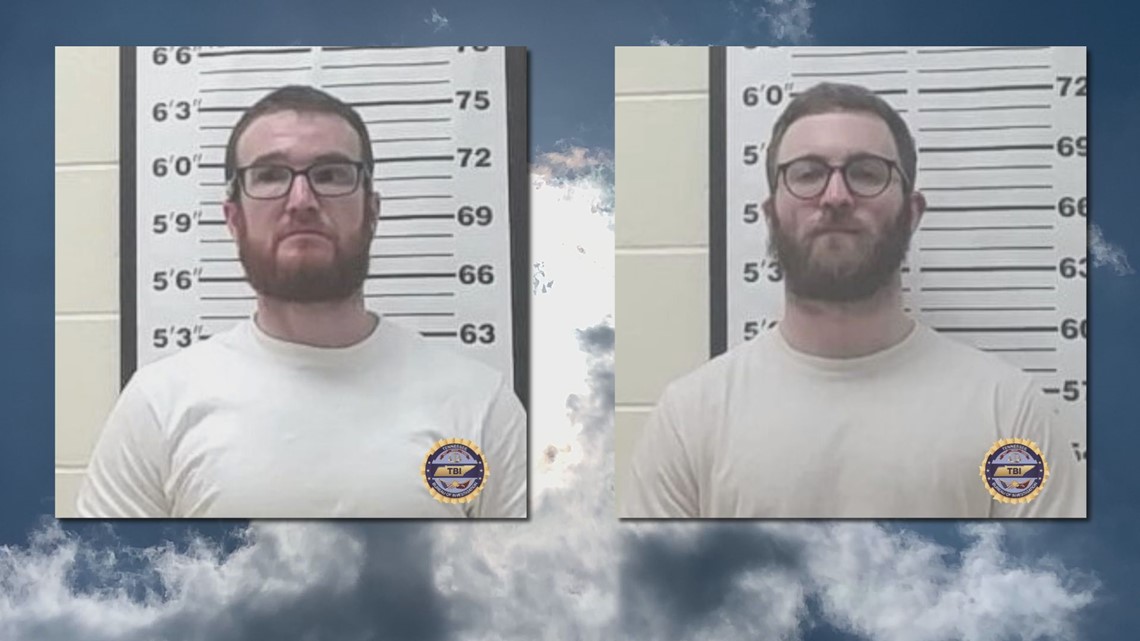
"We had the same sleep schedule, the same routine, the same workout plan, we ate the same food. We did everything together," he said. They looked so similar — with brown hair, square beards and black-frame glasses — the mugshots authorities released upon their escape were practically interchangeable.
They also spent a significant portion of their lives in and out of the Roane County Jail. Kennedy, then 35, faced charges ranging from aggravated assault to manufacturing meth. Ridenour, 22 at the time of the escape, strangled a man to death with a seatbelt over a drug debt and threw his body in the Emory River, Roane County court documents alleged.
They both faced lengthy prison sentences if found guilty of the crimes for which they were jailed, Ridenour said. Because of that, he said, they began to "joke" about absconding.
"Liberty is the all-impending, you know, the meat that's dangling in front of each and every one of us," he said.
Over a paid video connection from the Roane County lockup, Ridenour speaks confidently and at length. It takes no convincing for him to launch into the details of his story, which he tells mostly chronologically with some moments of reflection. As he thinks, he pauses and glances away from the camera — his blue eyes focused into the distance as he tries to describe how it all happened.

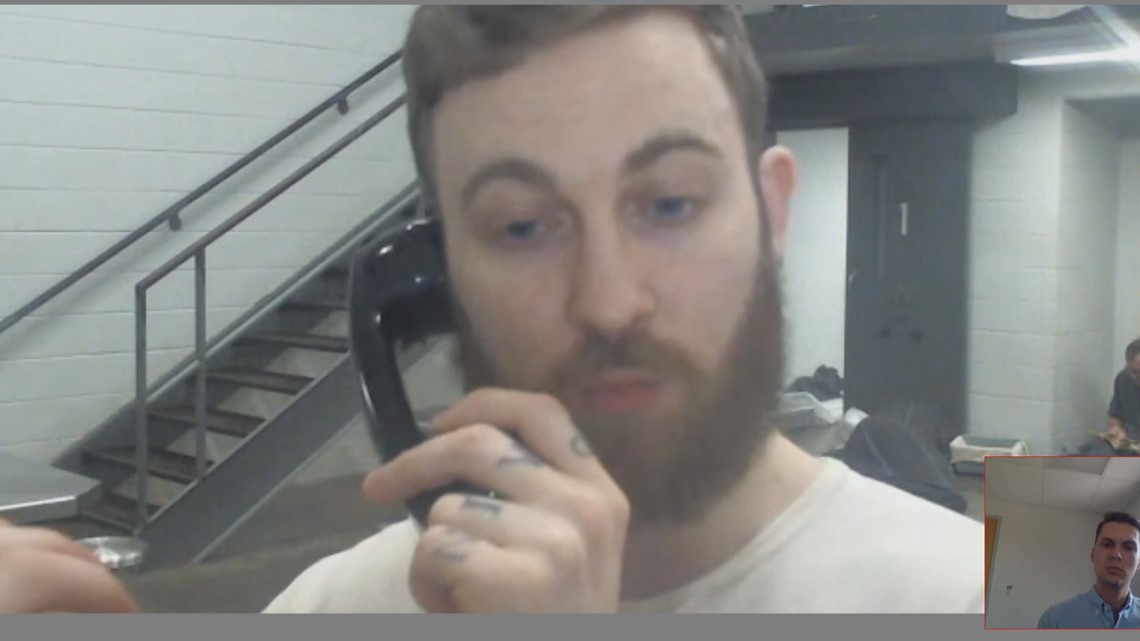
He said he and Kennedy both battled addiction, damaged relationships with their families and had few friends. "[Kennedy] was the best friend in my life at the time, that's for sure," Ridenour said.
Passing the time while incarcerated, they swapped stories about their lives on the outside. Ridenour said Kennedy had a child and was a survivalist, of sorts. "The first 18 years of his life, he grew up off the grid," Ridenour said. "He puts Bear Grylls to shame."
Kennedy's survival skills were integral to the planning and execution of their escape, but it was jailhouse misbehavior that gave them the opportunity to break free, Ridenour said.
"They put us in The Hole together," he said. Then, a week later, authorities moved them from the Roane County Jail to the lockup in Fentress County, he presumed as further punishment. In the back of a patrol car traveling the mountainous two-lane road north toward Jamestown, the pair hatched their plan to escape.
"I told him, 'Man this place is very loose security and believe it or not, there's actually a door that goes directly outside from the kitchen that's unlocked at all times,'" Ridenour recalled.
Making Their Plan "I'm not going to come back"
Failure was not an option for Charles Kennedy, Ridenour said.
About three days before the escape, he recalls his friend turning to him "with a look of pure determination" and saying "I'm not going to come back." Kennedy would rather die at the hands of police than face prison time, he said.
To avoid that outcome, Ridenour said they tried to prepare for every possibility. "It was all planned out," he said. "But at the same time, chance really had a lot of factor."
Their first break came as soon as they arrived at the Fentress County Justice Center. Ridenour said instead of evaluating their risk, jailers added the pair to the general population of inmates.
Several jailers did not carry any weapons like stun guns or mace, and inmate trustees could easily open a kitchen door into a gated back lot, he said. Fentress County Sheriff Michael Reagon did not return multiple inquiries by 10News about this case.

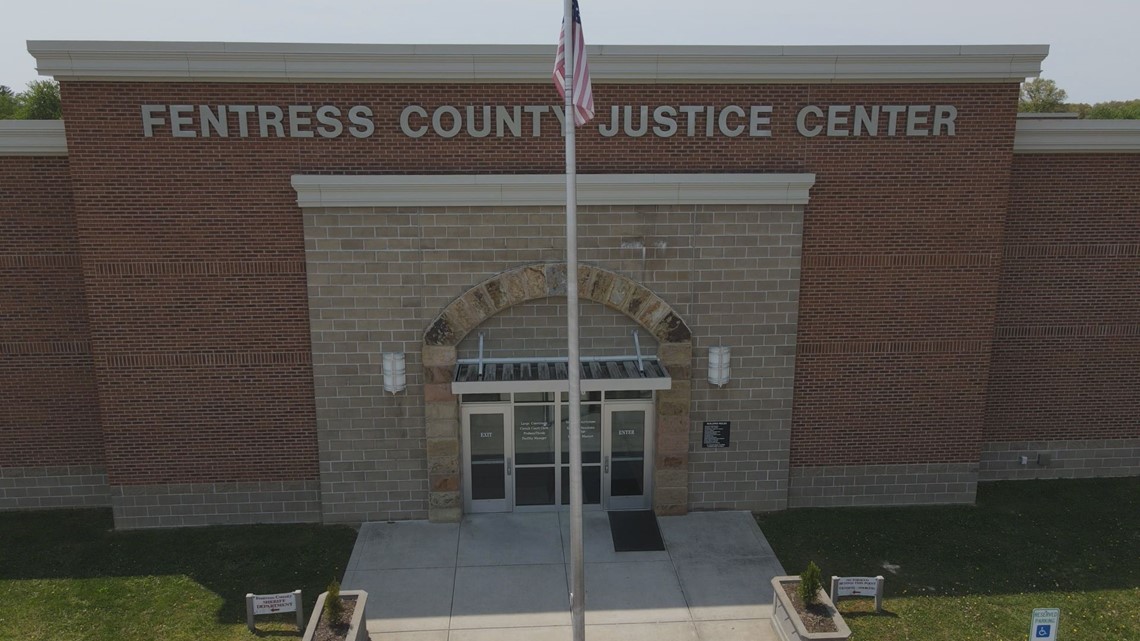
Ridenour and Kennedy began noting the guards' schedules, drawing maps of the facility using an emergency exit plan as a guide and exercising in anticipation of running from deputies, Ridenour said.
"We would walk at a fast pace through the pod just to try to condition ourselves to traveling long distances on feet," he said. "We asked a lot of questions of the inmates that were from the area and asked them to describe to us the land around the facility."
He said they stored up instant coffee, oatmeal, peanut butter, bleach for water purification and empty 24-ounce bottles they could use to store water while on the lam. They braided plastic and trash bags to make a rope, he said. To carry it all, they fashioned backpacks out of a string mop and their laundry bags.
"We both made straps for our glasses so they wouldn't fall off," Ridenour recalled. They tore a jail uniform into strips and laced their orange jail-issued Crocs to their feet through the holes in the shoes, he said. "Also, we had our feet wrapped with bandage tape to protect our feet and keep our ankles sturdy."
Ridenour said they prepared people on the outside to be ready to help them with money and a ride across the border once they made a break for it. "We had to be discreet and kind of talk about it at strange angles so that the police monitoring the phone calls wouldn't pick up on what we were trying to do," he said.
Their plan, Ridenour said, was to spend six to eight days in the woods, make their way to neighboring Morgan County, then Jonesboro, Ga., Louisiana and eventually Mexico — even though he speaks only "very, very remedial" Spanish. He said the pair knew people who could help "tide them over" there.
"We just wanted to get somewhere where we could maybe make it," Ridenour said. "That might sound cowardly, but that's just the truth of what we were trying to do."

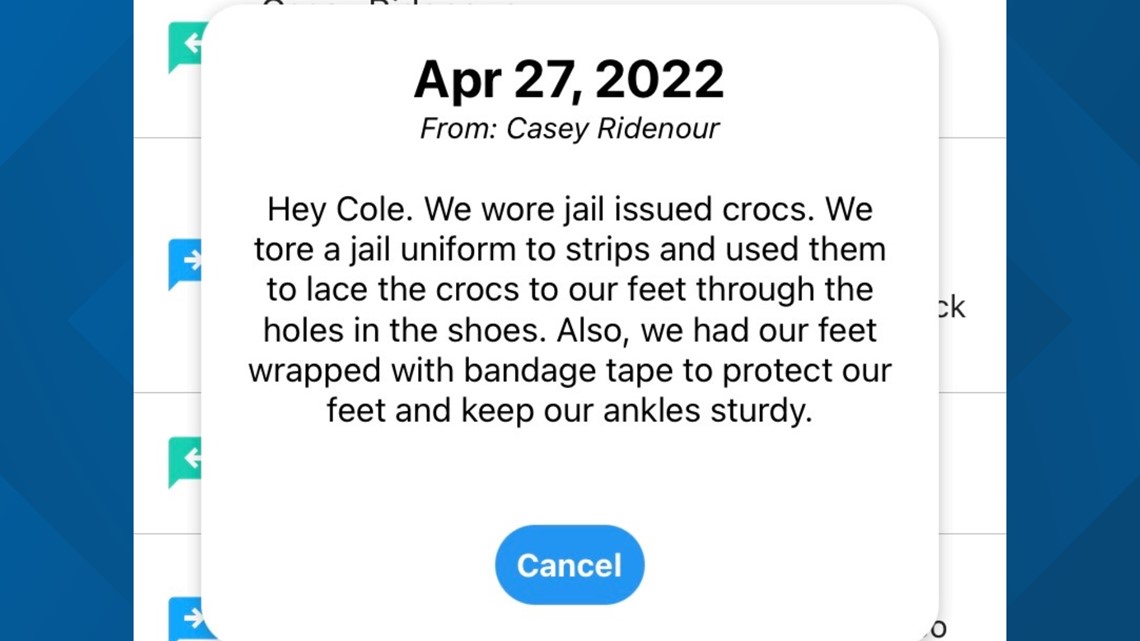
When they crossed the border, he said they planned to return to making money how they knew best. "I hate to put us in a bad light, a worse light, than we already are," he said. "But to be honest with you, probably the sale of narcotics. Just being blatantly honest."
"Also, we knew that we were both addicts and pushing narcotics is the easiest way to supply your own need," he said.
He said they didn't want to sell drugs while traveling, for fear they'd hinder their own progress and come face-to-face with too many people.
Instead, they planned to steal two people's identities and obtain loans under their names, he said. "Taped to the inside of both our legs, we had social security numbers, birthdays and addresses of a couple individuals."
"We wanted to get as much money as we could as fast as we could, regardless of the repercussions of doing those things," he said.
On Monday, July 19, they made their final preparations. Ridenour said they drank a strong cup of instant coffee, stuffed the makeshift backpacks of supplies down their pant legs, layered up clothing in anticipation of climbing through briars and began heading toward the jail kitchen.
The Escape "We jumped into a race car"
It was the perfect time to escape.
At that very moment, just after 7:45 a.m. July 19, guards were leading the other inmates out toward the rec yard — on the opposite end of the hallway from the kitchen where they planned to escape. The officer at the far end of the hallway was the only jailer with a stun gun, Ridenour said.
"The moment we ran out of the pod doors, they started yelling at us to stop running," he said. "But I don't think they had any earthly idea what we had in mind."
Their meticulous plan changed immediately. As they busted through the apparently-unlocked kitchen door into the gated jail parking lot, they ran toward a car. They dropped a shank they fashioned in preparation for the escape as they moved, the Fentress County Sheriff's Office said in a report.
The car was an eye-catching orange 2016 Dodge Challenger that belonged to a Fentress County corrections officer, the report said. "So we just happened to jump into a race car," Ridenour said.
"Honestly, we didn't have any earthly idea of what we were going to do next because we weren't intending on stealing a car," Ridenour recalled.

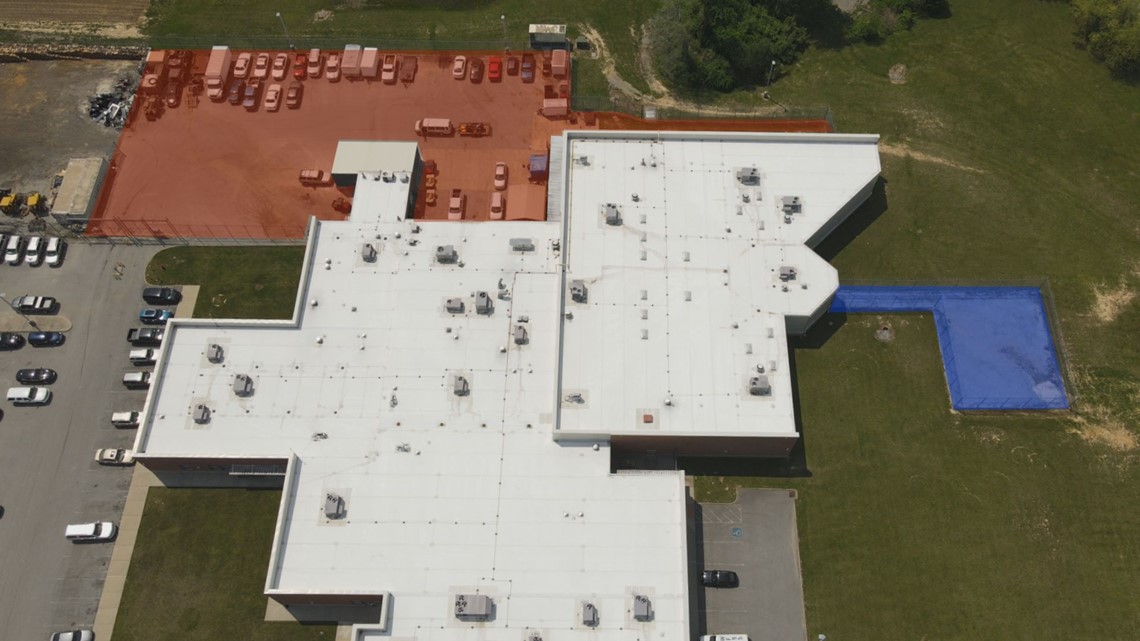
As jailers poured into the parking lot, Kennedy drove to the gate. It opened — and they took off.
"Hey, we've got two running out the, out the gate," Fentress County jailer Evella Rich told 911 dispatchers at 7:48. "We've got two inmates running."
"They went out the kitchen door to the gate," she continued. "They just left in an orange [Challenger] so they have it made up." The report from the sheriff's office showed it was her car.
"The car was going 165 [mph]," Ridenour said. "It might have been 15 seconds and we were on the highway and there was nothing to be seen in the rearview mirror." The report confirms the chase exceeded 100 mph at times.
"And then boom! The car ran out of gas," he said. "So we just so happened to jump into the one car with keys, we also happened to jump into the one car with keys and no gas."
The pair bailed out of the car near the Highland Manor Winery, nine miles south of the jail, the sheriff's office report said. They ran toward the woods as deputies began to catch up. "It was terrifying," Ridenour said. "I didn't know an adrenaline rush could last longer than a few seconds, I'll say that. It lasted all day."
On the Lam "Please don't look this way"
As Ridenour and Kennedy ran into the woods, friendly inmates back at the jail began covering their tracks.
"When we left, they took all our stuff and moved it and put their stuff there so when the police came back there and got stuff for the dogs to scent, they were scented to the wrong people," Ridenour said.
"There was multiple times we were out there that the dogs were running around us and looking for our trail, but couldn't find us because we weren't the people they were looking for," he said.
He and Kennedy could hear the searchers, their dogs and their helicopters. On occasion, Ridenour estimated they came within five yards of the teams hunting them. "Please don't look this way, please don't look this way," he thought.
"The vast majority of time honestly, we were just running for our lives," he said. "When we heard a noise, a dog barking or a helicopter overhead, we would immediately just -- not stop and freeze -- but try to adjust our path."
They soaked their clothes in mud to disguise the bright orange of their prison jumpsuits and Crocs. "We had already agreed that getting out of the facility wasn't the hard part, it was staying out," he said.
As the hours ticked by, the first moment the pair thought they got away with it was when it began to rain — further covering their tracks.
"I remember we both just fell to our knees, maybe just from exhaustion from running through the woods for a straight hour. And we just cried," Ridenour said. "We thought that we made it."
"That moment is probably one of the only moments in my life where my soul was probably laid bare to another human. And so that's something I'll never forget," he said.

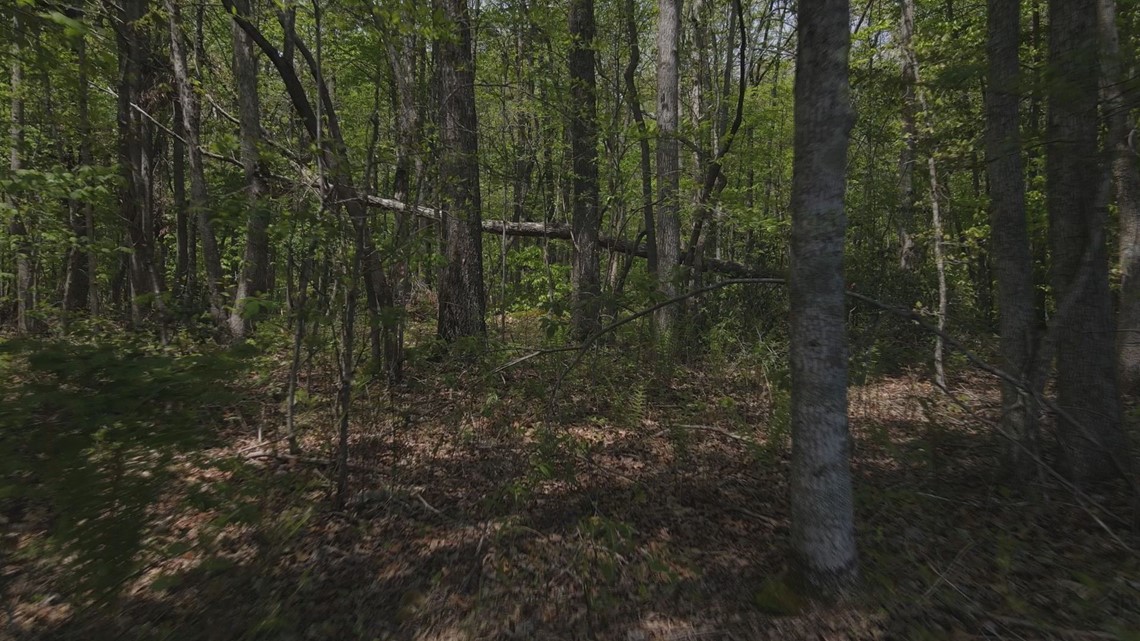
But Ridenour said he and Kennedy had a problem as night fell: they kept running in circles. "[We were] seeing the same thing over and over thinking 'Where are we? What's wrong? What are we doing wrong?'"
They decided to lay down to rest "out of pure frustration." That's when the bugs started to bite.
"That's what put me back in jail was little Tiger Mosquitoes," Ridenour said. "It was torture."
They ripped the sleeves off their shirts to protect their faces, he said, but it didn't work. Bone tired, they decided to keep moving. Before midnight, they stole a white utility truck from a nearby house, the Roane County Sheriff's Office later confirmed.
Just thirty minutes after their escape, Ridenour and Kennedy were added to the TBI's 'Most Wanted' list and a reward of $2,500 was offered for information leading to their capture. By the time they stole the utility truck, police had set up checkpoints on roads across Fentress County
"Every intersection we came to there was an officer present. Every single one of them with a spotlight on the whole time," Ridenour said.
As they approached the checkpoints, Ridenour said he crouched in the floorboard of the front seat. Kennedy put on a pink surgical mask they found tucked into the visor and took off his glasses.

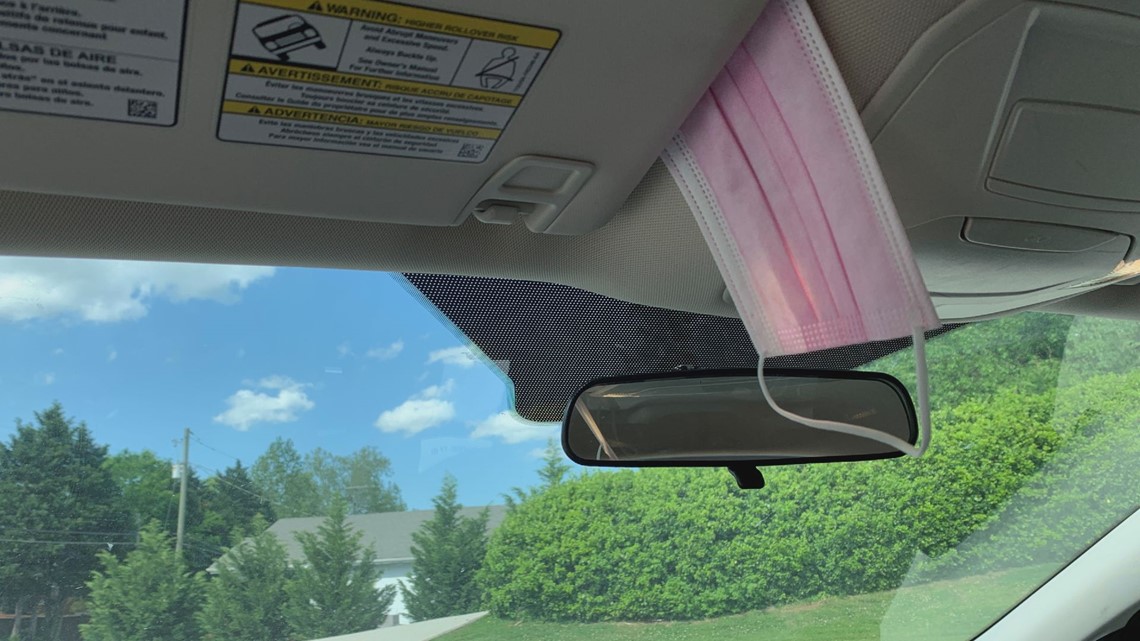
"Do your best to look anything other than who you are. Squat down, look shorter, just be different," he told his 6'4" friend. They made it through multiple checkpoints, he said, before coming around a blind turn to see a white law enforcement SUV waiting for them. Ridenour said he didn't have time to duck.
"The officer looks over and says 'How y'all doing?' And I stick my hand out the window and said 'We're doing good, have a good night and we pulled out,'" Ridenour said. "I just got the gut feeling he was going to come."
A minute later, he said, the officer pulled out behind them. "We tried to slowly speed up at first," he said. "We ended up in a high-speed chase."
Ridenour said the truck was maxing out around 95 mph. "As much as it would give us, we were giving it." At one point, he said they slammed on the brakes and forced the SUV to crash into their truck bed.
Other law enforcement soon joined the chase. Ridenour described a sea of flashing blue lights in the rearview mirror. "I mean, it was unreal," he said.
"All the tools that were in the truck, we were throwing out the windows trying to hit the cars behind us," he said.
They sped up a gravel driveway toward a cabin, with deputies close behind. "We drove through a yard and it was like 'Dukes of Hazzard,' [Kennedy] did a J-turn at about 75 mph in a truck in grass," Ridenour said. He said they jumped out of the car and ran into the woods of Fentress County once again.
"As we're running, we looked at each other and knew 'This is it," Ridenour said. "There's three options right now, and the biggest one is death."
Ten feet into the trees, Ridenour said he was knocked out cold. He had crashed straight into a fencepole. "I still have no earthly idea why this chain link fence is in the middle of the woods," he said.
Woozy from the blow to his head, Ridenour struggled on. Minutes later, at about midnight, he found himself surrounded.
Kennedy turned back and locked eyes with his friend. "I get cold chills now just thinking about it," Ridenour said. "I'll never forget there was a blood-curdling scream that he made."
"He stayed there for probably 10 seconds and then turn around and ran." With a defeated shrug, Ridenour added: "And that was the last time I ever saw him."
Dead in Mexico "He got what he wanted"
Locked in an isolation cell, Ridenour didn't know what happened to Kennedy for months.
"Part of me was like cheering him on, like I was watching my hometown football team playing or something," he said. "And part of me was scared for him."
He's pieced together parts of the story from friends on the outside. As best he can tell, Kennedy stayed in the woods for five or six days, then stole a truck and made his way to Mississippi. The Roane County sheriff later confirmed they found a truck Kennedy stole burned there.
"He sent me a message saying that he's headed to the beach," Ridenour said. "It meant the transit was about to take place from America to Mexico."
In September, he said he got a message his friend was "on the beach" — meaning he made it to Mexico. "I just remember jumping around like a young kid playing in the mud. I was jumping around in my cell, just excited," Ridenour said.
He almost didn't believe it when he heard Kennedy was dead.

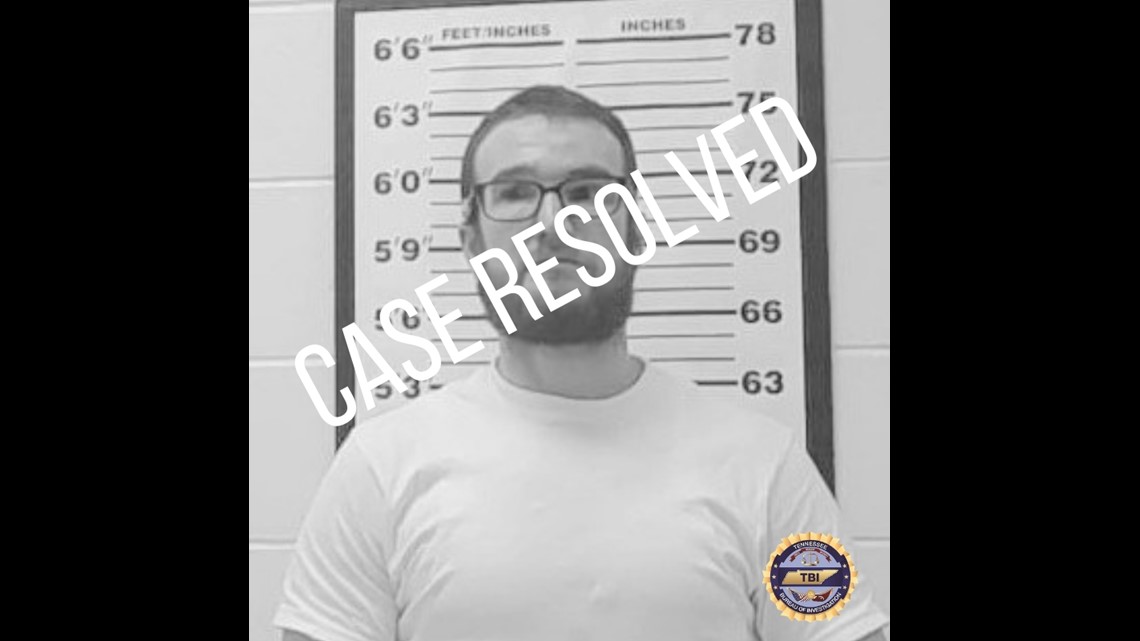
Around November 22, three days before Thanksgiving, someone in Mexico contacted Kennedy's family, the TBI said. The "criminal organization" sent his sister a video of his body and demanded money for its safe return, the Roane County sheriff said.
The video, which was reviewed by 10News, showed Kennedy lying prone on his back, wearing a white shirt with a green and red stripe down the middle. His skin appears ashen, but his red beard well-kept, as the camera pans down his long frame to his feet.
"What they didn't know is that we were originally going to plan to fake our death," Kennedy said. "The failsafe was death."
The Fentress County Sheriff's Office said special agents worked with the FBI, the U.S. Marshals Service, the American Embassy in Mexico and Mexican authorities to identify the body found in Iguala, Guerrero in Southwest Mexico.
"On Friday January 22, 2022, the FBI and the TBI confirmed by fingerprints and tattoo identification that the deceased subject was in fact Charles Edward Ray Kennedy," the sheriff's office said.

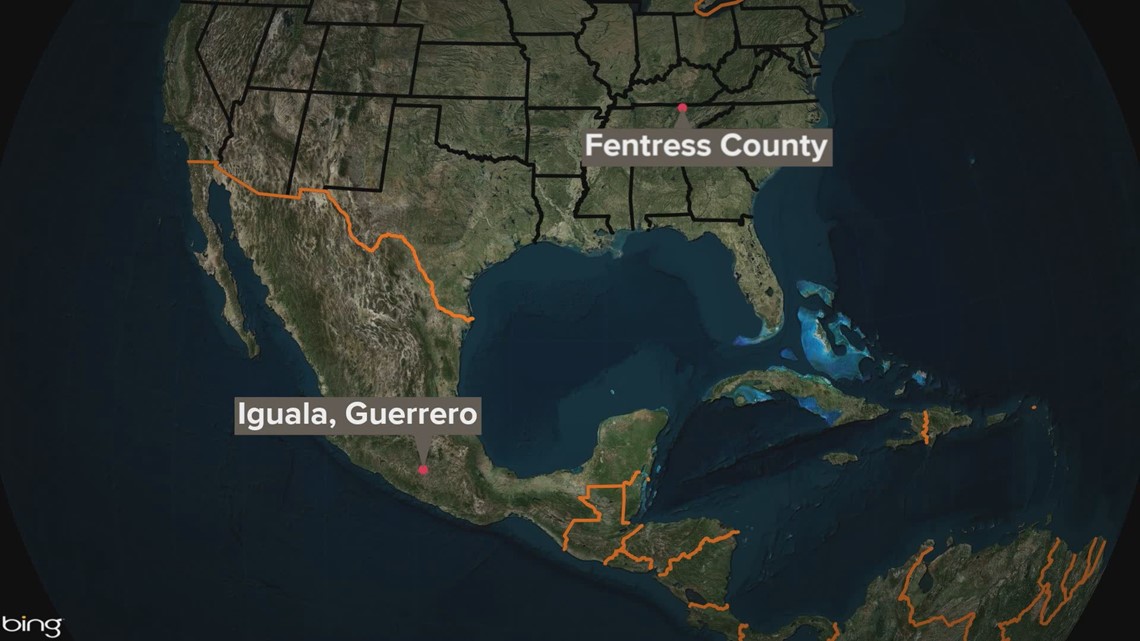
Authorities in Mexico didn't respond to a request for Kennedy's autopsy or details of the condition in which he was found.
"As much as I love Charles, he got what he wanted," Ridenour said. "What ultimately did happen to him would be better than him going to prison for the rest of his life. And so whether or not it was the right thing or a good thing, he did get what he wanted."
Looking Back "Thank you for not believing"
Facing a July 12 trial in his second-degree murder case, Ridenour is not sure if he'd do it all over again.
"Is my liberty something I wish I had? Absolutely," he said. "But I know the problems that I personally deal with in life, I know the addictions that I have as a burden and I understand that if I would have made it there, my life probably wouldn't look very good."
"This is a much better life than being in Mexico doing the things we planned on doing," he said, speaking from the Roane County Jail.

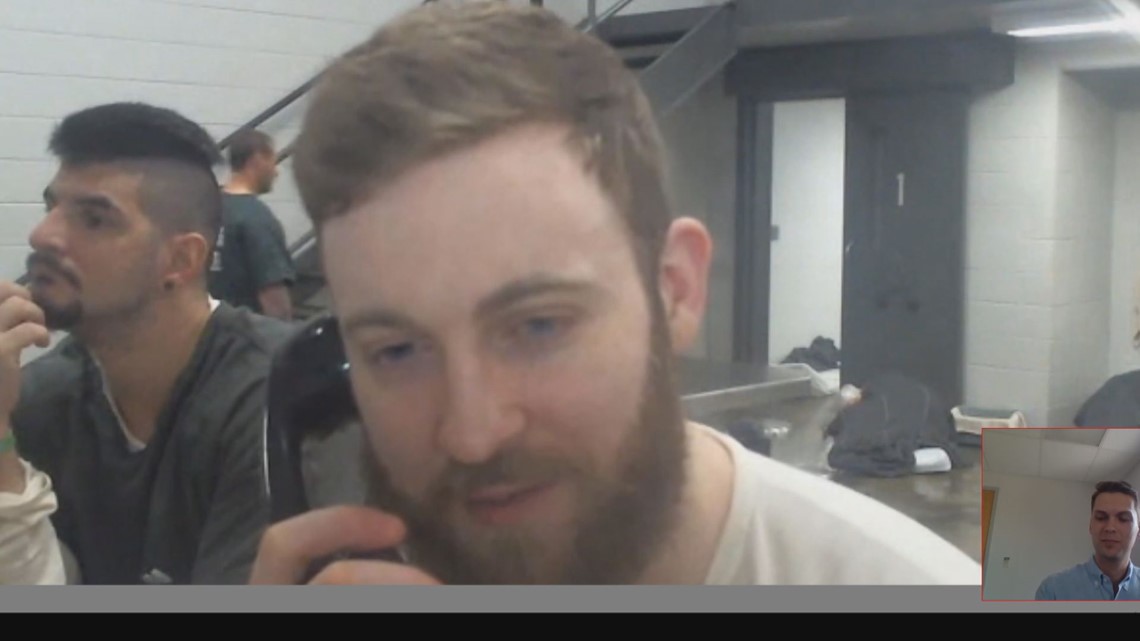
Ridenour knows the consequences of telling this story now. He still faces charges for the escape and explaining the intricacies of how he absconded likely won't help his case. He discussed with fellow inmates why he agreed to the interview and said he wants to tell this story to honor the memory of his friend.
"As broken as both of us are -- as broken as he was -- there was still good qualities that I think need to be remembered," he said. "So if nothing else, his skill, his dedication, his determination and his faith in me, his love in me -- those are great qualities for any person to have."
"Through this story, I feel like I can expose some of those qualities that he has."
Though he was confident explaining his friendship, his escape and his reason for sharing his story now, Ridenour didn't have an answer when asked why you should trust him -- he said he hadn't thought about it before.
After a moment of consideration, he decided it's better if you don't.
"Believing this story means you have to believe some of these problems I have," he said. "I would rather be a liar and this be a fabrication than it be true."
"So for everyone that doesn't want to believe it, thank you for not believing it."
Watch the never-before-told story of this daring escape Monday night at 6 and 11 on WBIR Channel 10.


